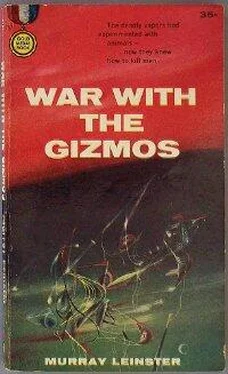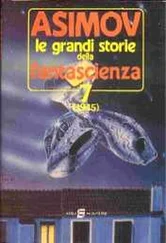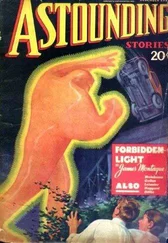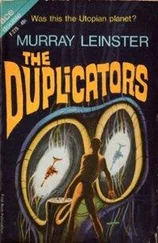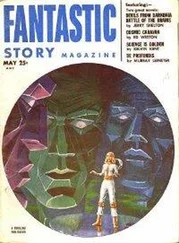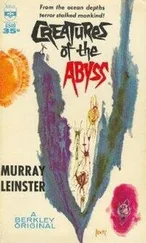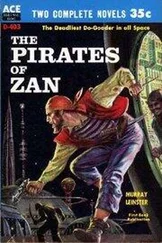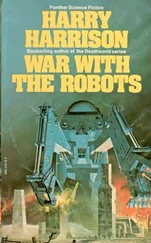Murray Leinster - War with the Gizmos
Здесь есть возможность читать онлайн «Murray Leinster - War with the Gizmos» весь текст электронной книги совершенно бесплатно (целиком полную версию без сокращений). В некоторых случаях можно слушать аудио, скачать через торрент в формате fb2 и присутствует краткое содержание. Год выпуска: 1958, Издательство: Fawcett Gold Medal, Жанр: Фантастика и фэнтези, на английском языке. Описание произведения, (предисловие) а так же отзывы посетителей доступны на портале библиотеки ЛибКат.
- Название:War with the Gizmos
- Автор:
- Издательство:Fawcett Gold Medal
- Жанр:
- Год:1958
- ISBN:нет данных
- Рейтинг книги:5 / 5. Голосов: 1
-
Избранное:Добавить в избранное
- Отзывы:
-
Ваша оценка:
- 100
- 1
- 2
- 3
- 4
- 5
War with the Gizmos: краткое содержание, описание и аннотация
Предлагаем к чтению аннотацию, описание, краткое содержание или предисловие (зависит от того, что написал сам автор книги «War with the Gizmos»). Если вы не нашли необходимую информацию о книге — напишите в комментариях, мы постараемся отыскать её.
War with the Gizmos — читать онлайн бесплатно полную книгу (весь текст) целиком
Ниже представлен текст книги, разбитый по страницам. Система сохранения места последней прочитанной страницы, позволяет с удобством читать онлайн бесплатно книгу «War with the Gizmos», без необходимости каждый раз заново искать на чём Вы остановились. Поставьте закладку, и сможете в любой момент перейти на страницу, на которой закончили чтение.
Интервал:
Закладка:
The asthmatic man dozed off presently, very grateful that so severe an asthmatic attack had been so brief.
Such incidents were not numerous. It was typical of the over-all situation, however, that grim occurrences such as the fate of the village of Serenity and slaughterings of domestic animals, were as consistently misunderstood as affairs connected with herb doctors and attacks of “asthma.”
There had been migrations from the forests in Maine and Minnesota and Georgia and Oregon—that is, migrations that had been observed as they took place. Elsewhere, people in innumerable places had seen foxes slinking harriedly through fields of soy beans, and deer warily following each other in places where deer had not been seen in years. There can be no question but that many wild creatures fled from the forests to human-occupied land as if choosing a peril they knew—men—rather than invisible horrors which whined in the wilderness.
And at about the time that Lane drove away from a newly murdered partridge, some thirty miles or so from Murfree, in western Virginia, there was a considerable group of human beings in Minnesota surveying the area the refugee animals occupied.
The news of the exodus had traveled far, long before dawn. There were farmers whose fields had been uninvaded, and there were those whose crops were partly but not wholly ravaged, and some who had found bears in their barnyards that morning. They had come to where county agents were gathering to confer on the problem of what could be done. Valuable crops were endangered by rabbits and woods-mice and deer and groundhogs and hordes of every kind of herbivorous animal. There were fish and game officials, and representatives of the SPCA. There was even a Department of Agriculture man, roused in his hotel room and driven eighty miles to arrive at dawn. He faced a kind of emergency even the Department had never had dumped in its lap before. And of course there were reporters. Most of them were for local newspapers, but there were one or two press association men, come in hope of a news story.
It was a somehow appalling spectacle in the early light. There was a giant cornfield, with green, straight, leafy stalks rising well over a man’s height in mathematically exact furrows which seemed to reach to the horizon. There was a road blocked to traffic by a state policeman’s car parked crosswise. Behind this barrier there were other cars, on the road and off it, with still other cars arriving and people moving forward from them on foot. News of the animal migration had traveled fast.
And there were animals in the com. Rabbits nibbled, and groundhogs gorged, and bears waddled recklessly among the stalks, stripping off half-ripe ears to feast on. Timid deer surged here and there, sometimes brave enough to crop the tenderer corn-leaves, but much more often driven in small bands of spasms of terror in which they knocked down and trampled dozens of times as much as they could have consumed. Here a fox could be seen, dining daintily off something small and bloody, while others of its victim’s kind eddied and hopped within yards. Skunks moved irritably in the press, their plumelike tails already warning of tempers frayed by crowding.
There were noises in the cornfield—animal noises. There were panics and frights and moments of precarious calm at one spot or another. But the cornstalks went down, and the farmer whose crop was vanishing before his eyes talked desperately with the county agents and fish and game officials and the representative of the Department of Agriculture. His family had been evacuated from the farmhouse far up the road. Stock in the barn and barnyard was at the mercy of predators who moved about in bewilderment and suspicion at the quantity of prey about. His hens were subject to weasels. And the tassels of his very fine corn crop dipped and dropped, and there was a steady sound of munching, and small squealings, and gruntings, and hoarse noises which no animals should have made at all.
There was no action. There was only steady, progressive destruction. The humans, both official observers and gaping curiosity seekers, could do nothing but stare. They could say nothing to each other except more or less varied expressions of amazement, surprise, and bewilderment. When the change came, the humans did not notice it at first. It did not begin where there were people. Perhaps only a small part of the animal horde heard the first thin whinings.
The killings of the animals began three-quarters of a mile from the parked state police car. It began in a clump of half a dozen deer, who abruptly went mad with desperation and charged crazily through the crowded rows of corn. They carried vicious, high-pitched whinings with them. Then a bear reared up and fought nothingness. More whinings came, and rabbits kicked convulsively, and skunks used their weapons of defense, and foxes snapped and gave battle to unseen things, and field mice and ground squirrels tried to squeak as they strangled, and even weasels rolled over and over with their demoniac fangs rending only air.
The humans realized what threatened when a spitting fury—a wildcat—plunged blindly through their midst, giving battle to emptiness. Then rabbits hopped among the cars and onlookers, and died in convulsions. Foxes ran blindly among the people, biting furiously at invisible things, and then they collapsed and died as the humans scattered.
The people did not hear the whinings which were all about them. The animals made a dismal, widespread din of despair and defiance and utterly desperate ferocity. But the people made an uproar, too. The congregation of onlookers was instantly a confusion of shouting, struggling participants in the panic. They fled to their own cars, or fought to get into any other they could reach.
They cranked up windows and started motors, and there was immediately a chaos of snarled traffic. Fenders clashed. Horns bellowed. Then cars deserted the roadway and crashed through fences and cut wide swathes in the com, to get around the jam.
In minutes there were only frantic, fugitive dust streaks racing away at top speed, except that there were some stalled cars, and some with tangled bumpers. Their owners struggled to escape by riding upon any one which managed to get into motion.
In half an hour, the press association men were indignantly swearing at staff men in the cities. They’d gotten to the nearest telephones to phone in their stories. The office men regarded the subject of the tales as freak stuff, of no earth-shaking importance. The scale of the phoned narratives made them something else, but by precedent such accounts should later be discredited or at the least scaled down to the possible. But the field men furiously insisted that animal husbandry departments of governments and colleges be queried about this massive outbreak of an animal epidemic. Department of Agriculture offices must be questioned on crop damage. Game officials must be hounded into committing themselves on the danger to human beings from carnivores like wildcats and bears which abandoned their natural haunts. Above all, health departments must be urged into statements on the danger of this animal plague to humans.
As the press association reporters squabbled with skeptical office men, undeniable cases of deaths among the onlookers came to them. A state policeman brought out bodies. Later he would feel cold chills down his back when he realized the chances he’d taken. People who’d gone to see an incredible thing they’d heard about on a party-line phone had died of their curiosity. Their faces were purple and their tongues protruded: they had suffocated.
This was the thing which forced belief. While doctors tried to establish some physical condition which would have caused human beings to suffocate of themselves—because there was no mark of exterior violence on any of the victims—the press association wires began to hum with the story. Helicopters took off with photographers to snap the death scene from the air. Health department emergency crews went racing to find out what had really happened. They would wear respirators and carry elaborate equipment for the securing of biological specimens for research upon the germ or virus responsible for the deaths. The mass of dead animal bodies called for the dispatch of bulldozers to cover up the bodies lest the contagion spread.
Читать дальшеИнтервал:
Закладка:
Похожие книги на «War with the Gizmos»
Представляем Вашему вниманию похожие книги на «War with the Gizmos» списком для выбора. Мы отобрали схожую по названию и смыслу литературу в надежде предоставить читателям больше вариантов отыскать новые, интересные, ещё непрочитанные произведения.
Обсуждение, отзывы о книге «War with the Gizmos» и просто собственные мнения читателей. Оставьте ваши комментарии, напишите, что Вы думаете о произведении, его смысле или главных героях. Укажите что конкретно понравилось, а что нет, и почему Вы так считаете.
